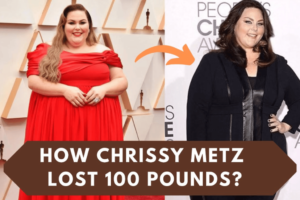There is no one-size-fits-all approach to weight loss, and the best diet plan for weight loss depends on your individual needs, preferences, and lifestyle. Here are some popular and effective diet plans for weight loss:
- Mediterranean diet: The Mediterranean diet is based on the traditional foods and dietary patterns of countries bordering the Mediterranean Sea. It emphasizes whole foods such as fruits, vegetables, whole grains, lean proteins, and healthy fats, and has been shown to be effective for weight loss and improving overall health.
- DASH diet: The Dietary Approaches to Stop Hypertension (DASH) diet is a low-sodium diet that emphasizes whole foods such as fruits, vegetables, whole grains, lean proteins, and low-fat dairy. It has been shown to be effective for weight loss and improving blood pressure and overall health.
- Plant-based diet: A plant-based diet emphasizes whole, minimally processed plant foods such as fruits, vegetables, legumes, nuts, and seeds, while limiting or avoiding animal products. It has been shown to be effective for weight loss and improving overall health.
- Low-carb diet: Low-carb diets such as the ketogenic diet and the Atkins diet restrict carbohydrate intake and emphasize protein and fat. They can be effective for weight loss, but may be challenging to sustain in the long term and may increase the risk of nutrient deficiencies and other health problems.
When choosing a diet plan for weight loss, it’s important to consider your individual needs and preferences, as well as any medical conditions or dietary restrictions you may have. Consult with a healthcare provider or registered dietitian to determine the best approach for you.
There are potential risks and downsides to following a specific diet plan for weight loss, including the risk of nutrient deficiencies, difficulty sustaining the diet long term, and potential health risks associated with some diets. It’s important to ensure that you’re getting all the necessary nutrients while following a diet plan for weight loss by incorporating a variety of whole foods from different food groups.
Remember that sustainable weight loss takes time and effort, and there may be setbacks along the way. Be patient and persistent, and focus on making healthy lifestyle changes that you can maintain in the long term.








Melissa Wilson
The best diet plan for weight loss varies from person to person, as individual needs, preferences, and lifestyles differ. However, some popular and effective diet plans for weight loss include:
Mediterranean Diet: The Mediterranean diet emphasizes whole, unprocessed foods such as fruits, vegetables, whole grains, lean proteins (such as fish and poultry), nuts, seeds, and healthy fats (such as olive oil). It limits red meat, processed foods, and added sugars. This diet is rich in nutrients, fiber, and healthy fats, and has been associated with numerous health benefits, including weight loss.
DASH Diet: The Dietary Approaches to Stop Hypertension (DASH) diet focuses on consuming fruits, vegetables, whole grains, lean proteins, and low-fat dairy products while reducing sodium intake. It is effective for weight loss and also helps lower blood pressure.
Flexitarian Diet: The flexitarian diet is a flexible approach that combines elements of vegetarianism with occasional consumption of meat or fish. It encourages plant-based meals rich in fruits, vegetables, whole grains, legumes, and healthy fats while limiting processed foods and refined grains.
Low-carb Diets: Diets like the Atkins diet, South Beach diet, or ketogenic diet focus on reducing carbohydrate intake and increasing protein and fat consumption. These diets can promote weight loss by inducing ketosis, suppressing appetite, and stabilizing blood sugar levels.
Intermittent Fasting: Intermittent fasting involves cycles of eating and fasting periods. The most common methods include the 16/8 method (fasting for 16 hours and eating within an 8-hour window) or the 5:2 method (eating normally for 5 days and severely restricting calorie intake for 2 non-consecutive days). Intermittent fasting can help control calorie intake and promote weight loss.
It's important to remember that there is no "one size fits all" diet plan for weight loss. The best approach is to find a plan that suits your preferences, aligns with your health goals, and is sustainable for the long term. Consider working with a registered dietitian or healthcare professional who can provide personalized guidance and support to help you find the most effective and suitable diet plan for your individual needs.